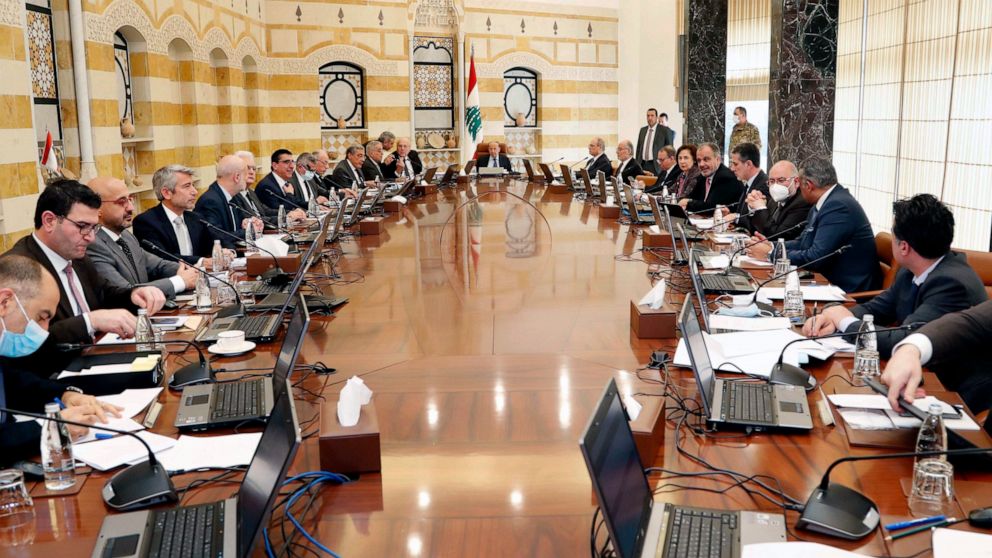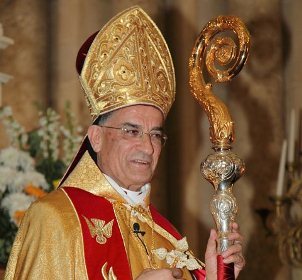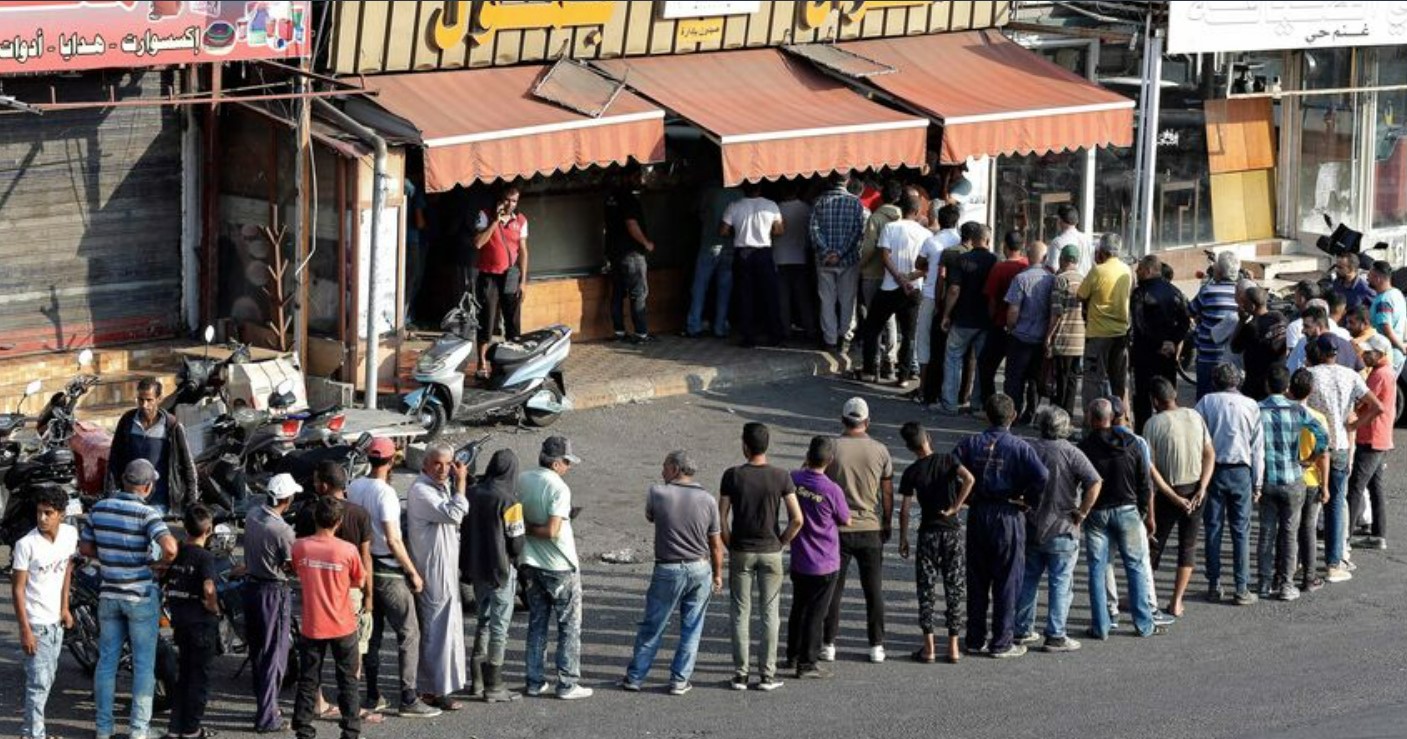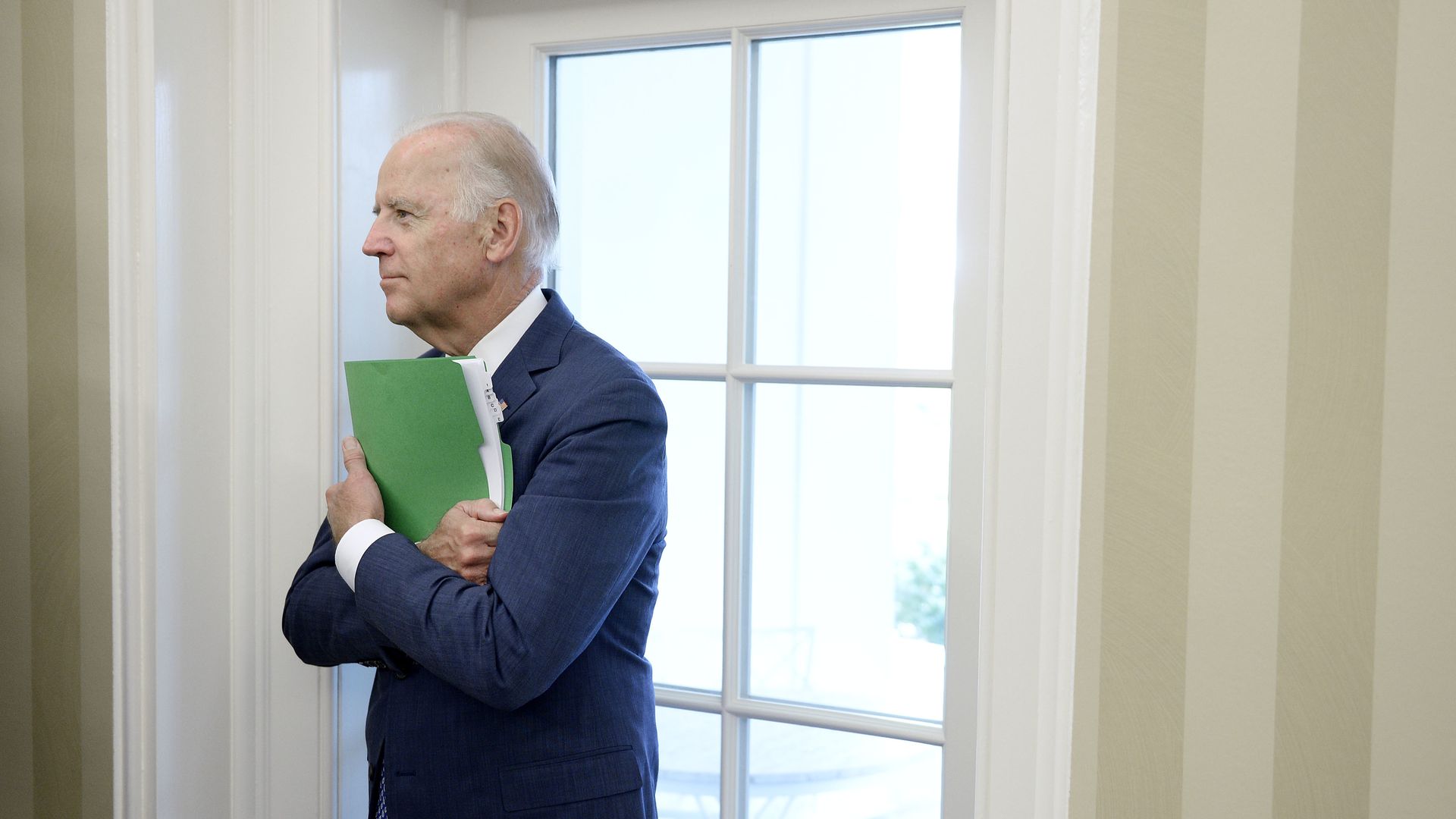
By Najia Houssari -- arabnews.com -- BEIRUT: A delegation from the American Task Force for Lebanon has stressed the importance of “establishing a social economic program before it is too late.” The call came after the delegation — accompanied by US ambassador to Lebanon Dorothy Shea — held talks with several Lebanese officials on Monday. Edward Gabriel, head of the ATFL, said: “Time is moving quickly, and the government must expedite laws and policies, carry out the required reforms, and take the necessary steps to meet the needs of citizens to push forward negotiations with the International Monetary Fund. We need a partner, and that partner is the government, which has to act quickly to achieve what is required from it.” The US provided aid worth more than $700 million to Lebanon last year, he added, and President Joe Biden “did not forget about Lebanon” during his Middle East visit.
FASTFACT MP Ibrahim Kanaan, chair of the finance and budget committee, announced the adoption of a law amending banking secrecy to prevent tax evasion, combat corruption, financing terrorism, and illicit enrichment. Biden mentioned several issues that affected Lebanon and stressed the integrity of the Lebanese territories during his meetings. The US call came as judicial assistants decided to join a strike of public sector employees on Monday, causing courts in Lebanon to grind to a halt. Public sector employees have been striking for about a month demanding that salaries be increased and for transportation allowances to be raised. The judicial assistants said they had stopped working permanently and would not make any exceptions, be they for urgent cases or public prosecutions, and would no longer issue notices on behalf of departments and courts.

NNA - Maronite Patriarch, Cardinal Bechara Boutros al-Rahi, presided this morning over Sunday Mass at the summer patriarchal edifice in Diman. In his religious sermon, the Patriarch urged all thoose involved in political affairs to rememebr that "they are also entrusted with the mission of serving the common good, through which the good of all and the good of every citizen is preserved." Touching on the growing daily-living crises in the country, al-Rahi considered that they do not spare any Lebanese family of any financial status. "This is clearly visible: in the crises of flour, bread, electricity, water and food, school fees, medicine and hospital supplies, the return of the Corona epidemic, and confusion in the treatment of public sector employees’ wages amid discretionary increases that contradict the concept of equality between citizens and employees," he said.
The Patriarch also referred to the "ambiguities over the negotiations to demarcate the maritime borders between Lebanon and Israel," stressing that "Lebanon cannot wait for long to extract gas and oil, while Israel is doing so," and hoping that "the United States of America, the mediating country, will resolve the issue with Israel, since Lebanon has provided the maximum for the success of the negotiations." "Amidst this reality, the Lebanese people are waiting for rescue solutions, only to find that problems are further escalating and their poverty increasing," al-Rahi regretted. He considered that distrust in the political community has doubled and Lebanon's credibility in seeking aid from friends is weakened due to the absence of clear and solid rescue solutions. He thus called on the political forces, "in light of the political, parliamentary and security facts, to move away from the atmosphere of challenge that complicates Lebanon's relations and distances the Lebanese constituencies, at a time when Lebanon is going through the most serious existential challenge in its modern history."

By Nicole Di Ilio -- al-monitor.com -- BEIRUT — On a hot July morning, Ali Samir Nabbouh stood for more than two hours outside a bakery in Beirut’s southern suburbs, desperately waiting for a bag of bread. The shop had not yet raised its shutters, and he jostled among a restless crowd all eager to be first served. “I had to feed Fatima and Sarah, my two daughters. I couldn’t miss my turn,” he said. Nabbouh, a 45-year-old divorced father with a part-time job, was struggling for yet another day to bring some pita bread to the table. Not long ago, to do so was a given for all walks of life in Lebanon. But even the staples of life are out of reach for many now. Not only has the number of bread bundles decreased in weight, but their cost has also increased by 550%. Exorbitant prices are now beyond the means of many. Today, what was considered the food of the poor, accessible to all, has become a luxury good. “Just a few months ago, Arabic bread cost 1,500 Lebanese pounds. Now, it reaches around 25,000,” Nabbouh said. “We are not looking to buy anything extra. We’re just trying to buy some food. And we have to beg for help to eat.” With its currency in freefall, its economy shattered and its flatlining legislature incapable of offering reprieve, Lebanon was one of the most vulnerable countries in the world to a supply shock. And then came Ukraine.
Vladimir Putin’s invasion not only brought its neighbor to its knees, but it also decapitated Ukraine’s wheat export industry and, in doing so, sparked unprecedented prince hikes and scarcity of grain across its main export markets in the Middle East. As of early February, just before the Russian invasion, more than 95% of Ukraine’s grain exports — wheat and maize — were shipped via the Black Sea, and half were sent to the Middle East and North Africa. But after Ukraine’s southern ports Odessa, Kherson and Mykolaiv became battlegrounds, the key corridor was closed, suffocating the maritime trade that Lebanon relied upon.

By ALEXANDER WARD and JONATHAN LEMIRE -- politico.com -- JEDDAH, Saudi Arabia — President Joe Biden’s four-day Middle East trip was a stark demonstration of how, on the global stage, the importance of values at times gets downplayed in the cold pursuit of the national interest. Biden’s swing through Israel, the West Bank and Saudi Arabia saw the United States engaged in a great game, seeking a larger foothold in the region as Russia and China muscle their way in. Armed with hugs and fist bumps, Biden both literally and figuratively embraced traditional allies who sought rekindled ties to their most important security partner. That coziness resulted in historic agreements to bring Jerusalem and Riyadh closer together, a crown prince seemingly more open to ending the war in Yemen and a renewed push to solve the intractable conflict between Israelis and Palestinians.
But getting there came at a cost. The president’s reputation as a champion of human rights suffered a potentially significant blow once the image of his fist bump with Mohammed bin Salman beamed across screens worldwide. Though Biden raised the murder of journalist Jamal Khashoggi in his meeting with the kingdom’s de facto ruler, who Biden and the U.S. intelligence community believe ordered the killing, his main objective wasn’t to lecture. It was to maximize America’s influence in the Middle East. Biden came to deal with “the needs of the free world, and particularly the United States, and not leave a vacuum here, which was happening as it has in other parts of the world,” he told reporters Friday night in defense of his trip. It will take weeks, months and years to know if it was all worth the media nightmare the president and his team endured.
The diplomatic gamble had an eye toward the long term even as immediate concerns loomed large, namely the need for increased oil production to erase the West’s energy deficit following Russia’s invasion of Ukraine. Should many of the initiatives pan out — especially the hoped-for normalization of relations between Israel and Saudi Arabia — Biden and his coterie may deem the visit in the scorching heat a success. To hear the administration tell it already, Biden didn’t have to minimize anything to boost America’s standing and make strategic gains this week. If anything, U.S. officials say the president bolstered his reputation as a savvy statesman. “You can’t advance your values and advance your concerns about human rights by not traveling, by staying home, by not having conversations,” National Security Council spokesperson John Kirby told POLITICO on the sidelines of the president’s meetings in Jeddah. “The way you prove that human rights are, in fact, an integral part of your foreign policy is to get out on the road and have those conversations.”
Khazen History


Historical Feature:
Churches and Monasteries of the Khazen family

St. Anthony of Padua Church in Ballouneh
Mar Abda Church in Bakaatit Kanaan
Saint Michael Church in Bkaatouta
Saint Therese Church in Qolayaat
Saint Simeon Stylites (مار سمعان العامودي) Church In Ajaltoun
Virgin Mary Church (سيدة المعونات) in Sheilé
Assumption of Mary Church in Ballouneh
1 - The sword of the Maronite Prince
2 - LES KHAZEN CONSULS DE FRANCE
3 - LES MARONITES & LES KHAZEN
4 - LES MAAN & LES KHAZEN
5 - ORIGINE DE LA FAMILLE
Population Movements to Keserwan - The Khazens and The Maans
ما جاء عن الثورة في المقاطعة الكسروانية
ثورة أهالي كسروان على المشايخ الخوازنة وأسبابها
Origins of the "Prince of Maronite" Title
Growing diversity: the Khazin sheiks and the clergy in the first decades of the 18th century
Historical Members:
Barbar Beik El Khazen [English]
Patriach Toubia Kaiss El Khazen(Biography & Life Part1 Part2) (Arabic)
Patriach Youssef Dargham El Khazen (Cont'd)
Cheikh Bishara Jafal El Khazen
Patriarch Youssef Raji El Khazen
The Martyrs Cheikh Philippe & Cheikh Farid El Khazen
Cheikh Nawfal El Khazen (Consul De France)
Cheikh Hossun El Khazen (Consul De France)
Cheikh Abou-Nawfal El Khazen (Consul De France)
Cheikh Francis Abee Nader & his son Yousef
Cheikh Abou-Kanso El Khazen (Consul De France)
Cheikh Abou Nader El Khazen
Cheikh Chafic El Khazen
Cheikh Keserwan El Khazen
Cheikh Serhal El Khazen [English]
Cheikh Rafiq El Khazen [English]
Cheikh Hanna El Khazen
Cheikha Arzi El Khazen
Marie El Khazen